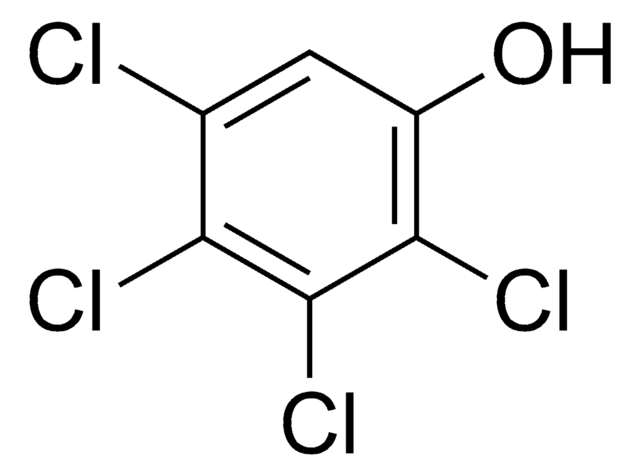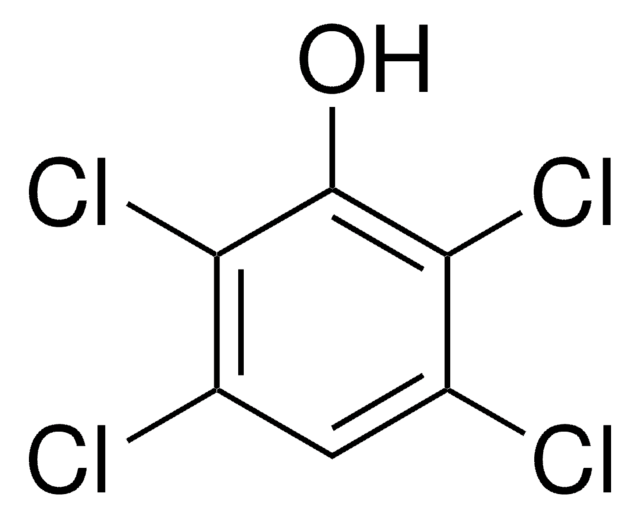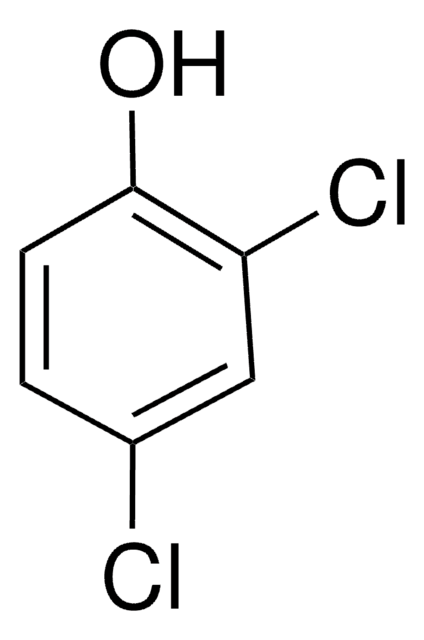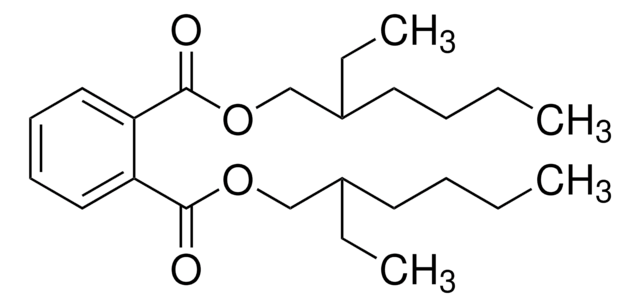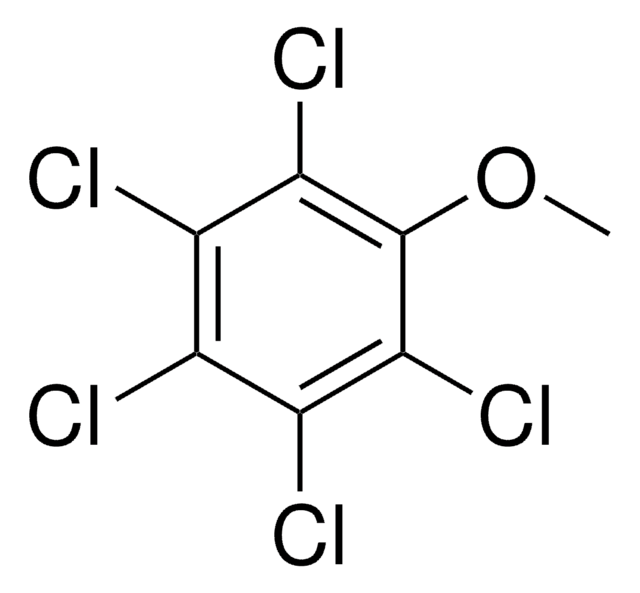P2604
Pentachlorophenol
97%
Sinónimos:
1-Hydroxy-2,3,4,5,6-pentachlorobenzene, 1-Hydroxypentachlorobenzene, 2,3,4,5,6-Pentachlorophenol
About This Item
Productos recomendados
vapor density
9.2 (vs air)
Quality Level
vapor pressure
40 mmHg ( 211.2 °C)
assay
97%
form
powder or chunks
bp
310 °C (lit.)
mp
165-180 °C (lit.)
density
1.978 g/mL at 25 °C (lit.)
SMILES string
Oc1c(Cl)c(Cl)c(Cl)c(Cl)c1Cl
InChI
1S/C6HCl5O/c7-1-2(8)4(10)6(12)5(11)3(1)9/h12H
InChI key
IZUPBVBPLAPZRR-UHFFFAOYSA-N
¿Está buscando productos similares? Visita Guía de comparación de productos
Categorías relacionadas
signalword
Danger
Hazard Classifications
Acute Tox. 2 Inhalation - Acute Tox. 3 Dermal - Acute Tox. 3 Oral - Aquatic Acute 1 - Aquatic Chronic 1 - Carc. 2 - Eye Irrit. 2 - Skin Irrit. 2 - STOT SE 3
target_organs
Respiratory system
Storage Class
6.1A - Combustible acute toxic Cat. 1 and 2 / very toxic hazardous materials
wgk_germany
WGK 3
Elija entre una de las versiones más recientes:
¿Ya tiene este producto?
Encuentre la documentación para los productos que ha comprado recientemente en la Biblioteca de documentos.
Nuestro equipo de científicos tiene experiencia en todas las áreas de investigación: Ciencias de la vida, Ciencia de los materiales, Síntesis química, Cromatografía, Analítica y muchas otras.
Póngase en contacto con el Servicio técnico
